American musicians have consistently played a pivotal role in shaping the global music landscape, offering a breathtaking diversity of styles and voices that have resonated across generations. From the raw energy of rock and roll to the intricate rhythms of soul and pop, these artists haven’t just created songs; they’ve sculpted sonic universes, topping charts and leaving an indelible mark on culture and society. Their influence extends far beyond mere entertainment, often reflecting and driving significant social and cultural shifts within the nation.
Indeed, these legendary figures are more than just performers; they are the architects of sound, the storytellers of a nation’s spirit, and the trailblazers who constantly push the boundaries of artistic expression. Through their innovative approaches to songwriting, performance, and genre blending, they’ve crafted legacies that continue to inspire and electrify audiences worldwide. This article embarks on an in-depth journey through the careers and enduring legacies of some of the most famous American musicians, celebrating their profound contributions to music and their lasting influence across an astonishing array of genres.
We begin by examining the earliest waves of these musical titans, those whose initial bursts of creativity and sheer charisma laid the groundwork for entire movements. These are the artists who, through sheer force of will and undeniable talent, revolutionized popular music and set new standards for what it meant to be an American icon. Their stories are interwoven with the fabric of American history, showcasing how art can both mirror and propel societal change, establishing blueprints for future generations of musicians to build upon and reinterpret.
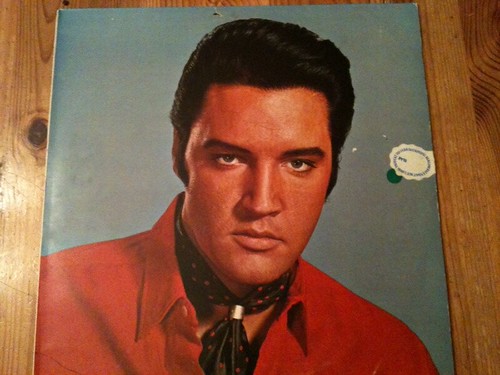
1. **Elvis Presley: The King’s Revolutionary Reign**Elvis Presley, affectionately known as the “King of Rock and Roll,” remains one of the most utterly influential cultural icons of the 20th century, a figure whose very name conjures images of raw magnetism and musical revolution. Born into humble beginnings in Tupelo, Mississippi, in 1935, Presley embarked on his musical journey in the nascent stages of the 1950s. What he brought forth was not just a sound, but a seismic shift in popular music, masterfully weaving together the distinct threads of gospel, blues, and country to forge a vibrant, electrifying new genre that would captivate the world.
His meteoric rise truly began with his first hit, “Heartbreak Hotel,” released in 1956, a track that instantly catapulted him to unprecedented fame. Beyond the catchy melodies and innovative arrangements, it was Presley’s electrifyingly dynamic stage presence, his undeniable charisma, and that distinctive, soulful voice that transformed him into a global sensation. He embodied a new kind of freedom and rebellion, becoming an unwitting symbol for the burgeoning youth culture of both the 1950s and 1960s, challenging societal norms with every hip swivel and vocal flourish.
Throughout his whirlwind career, Elvis was incredibly prolific, releasing a seemingly endless stream of hit albums and singles that dominated the airwaves. Not content with just conquering the music charts, he also ventured into acting, starring in over 30 films that further cemented his image as a multifaceted cultural icon. Though Presley tragically passed away in 1977, his monumental legacy as the “King of Rock and Roll” continues to resonate with undiminished power, influencing countless artists and generations, proving that true artistry transcends time.
Read more about: Beyond the ’27 Club’: This Artist’s AI Reveals How 12 Rock Legends Would Look Today!
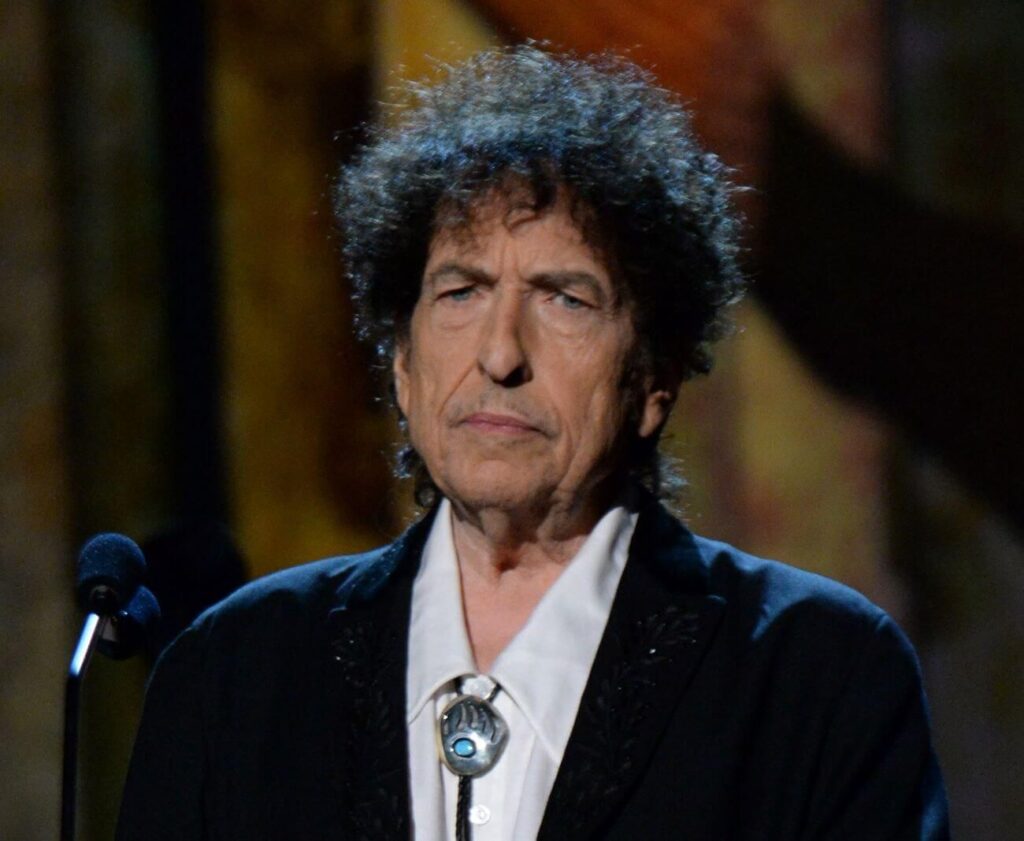
2. **Bob Dylan: The Poetic Voice of a Generation**Bob Dylan stands as one of the most profoundly influential singer-songwriters of all time, a true lyrical alchemist revered for his intricate, often enigmatic lyrics, his immediately recognizable, distinctive voice, and an uncanny ability to reinvent his artistic persona across several decades. Born Robert Zimmerman in Duluth, Minnesota, in 1941, Dylan first emerged into the spotlight in the early 1960s as a leading figure in the burgeoning folk music scene. He quickly became recognized as the undeniable voice of a generation, his songs like “Blowin’ in the Wind” and “The Times They Are a-Changin’” articulating the hopes, frustrations, and calls for justice that defined an era.
His lyrical compositions were far more than just songs; they were potent vessels of social and political commentary, deeply resonating with the spirit of the civil rights and anti-war movements that were sweeping across the nation. Dylan’s words provided a profound narrative, giving voice to the collective consciousness and anxieties of a tumultuous time. His poetic depth and unflinching honesty earned him a revered place in the cultural landscape, influencing activists and artists alike.
In a move that initially shocked many purists but ultimately solidified his status as an unparalleled musical innovator, Dylan famously transitioned to electric rock in the mid-1960s. This bold shift yielded seminal albums such as *Highway 61 Revisited* and *Blonde on Blonde*, which further expanded the boundaries of rock music and showcased his relentless creative spirit. Over his remarkably long and illustrious career, Dylan has garnered a plethora of awards, including the Nobel Prize in Literature in 2016, a singular recognition that celebrated his profound contributions to music and culture, acknowledging him as a true poet and songwriter whose words transcended the conventional definitions of music.
Read more about: Stepping Back to the Sixties: The 11 Icon-Makers Who Were the True Royals of Style and Shaped the Global Scene

3. **Aretha Franklin: The Undisputed Queen of Soul**Aretha Franklin, universally acclaimed as the “Queen of Soul,” possesses one of the most extraordinarily powerful and emotionally resonant voices in the annals of American music history. Born in Memphis, Tennessee, in 1942, Franklin’s formidable vocal talents were first honed in the sacred precincts of her father’s church, where she began singing gospel music at a young age. This deep spiritual foundation provided the bedrock for her later transition to secular music in the vibrant decade of the 1960s, a move that would irrevocably alter the course of popular music.
Her powerful vocal delivery, coupled with an unparalleled emotional depth and an innate ability to convey the very essence of soul music, rapidly established her as an iconic figure. Each note she sang was imbued with a raw honesty and spiritual fervor that captivated audiences. Her seminal 1967 hit, “Respect,” transcended its musical origins to become a powerful and enduring anthem for both the civil rights and feminist movements, forever cementing her indelible place in music history and broader social change.
Throughout her illustrious career, Franklin’s artistry was consistently recognized with numerous accolades, including an astounding 18 Grammy Awards. She left behind a monumental catalog of timeless classics, including deeply moving tracks like “Chain of Fools,” the defiant “Think,” and the heartfelt “Natural Woman.” Her profound influence radiates across multiple genres, and she is frequently cited as a primary inspiration by countless contemporary artists. Franklin’s passing in 2018 left a void, but her legacy as an unequivocal trailblazer in soul and popular music endures, a testament to her unmatched vocal prowess and spirit.
Read more about: Before 21: A Look at 14 Celebrities Who Embraced Parenthood Early

4. **Michael Jackson: The Reigning King of Pop’s Global Spectacle**Michael Jackson, universally revered as the “King of Pop,” is undeniably one of the most successful and profoundly influential entertainers in the entire history of music. Born in Gary, Indiana, in 1958, Jackson’s extraordinary journey began at a tender age as the charismatic lead singer of the Jackson 5, a family group that achieved immense popularity and commercial success throughout the 1970s. However, it was his subsequent solo career that truly revolutionized pop music, setting entirely new benchmarks with groundbreaking albums such as *Off the Wall*, *Thriller*, and *Bad*.
Jackson’s music was characterized by an innovative sound, meticulous and intricate production, and a dynamic, instantly recognizable vocal style that collectively redefined the pop genre. *Thriller*, released in 1982, stands as an unparalleled achievement, remaining the best-selling album of all time. It spawned an array of iconic hits, including the electrifying “Billie Jean,” the powerful “Beat It,” and the chilling title track, each a cultural phenomenon in its own right. His genius wasn’t just confined to audio; Jackson’s pioneering music videos, particularly the cinematic “Thriller” and the gritty “Bad,” dramatically elevated the art form, setting new standards for visual storytelling within the music industry and proving that a song could be a complete multimedia experience.
Michael Jackson’s influence permeated far beyond just music; he reshaped dance, fashion, and pop culture on a global scale. Despite the controversies that unfortunately shadowed his later years, his sheer impact on music, performance, and cultural consciousness remains utterly unparalleled. His legacy continues to inspire and challenge artists across the globe, a testament to a visionary who pushed every imaginable boundary.
Read more about: The Unforgettable Echoes: 12 American Music Titans Who Forever Sculpted Sound and Culture

5. **Bruce Springsteen: The Boss, Voice of the American Heartland**Bruce Springsteen, affectionately known as “The Boss,” is an iconic American rock musician whose legacy is built upon powerful, poignant songwriting, a distinctive, gravelly voice, and legendary, high-octane live performances. Hailing from Long Branch, New Jersey, born in 1949, Springsteen ascended to prominence in the gritty 1970s with his seminal album *Born to Run*. This masterpiece showcased his unique and potent blend of rock, folk, and a deeply resonant heartland Americana, capturing the spirit of blue-collar life with poetic grace and raw energy.
Springsteen’s music consistently delves into the struggles, dreams, and everyday realities of the American working class, themes that resonate deeply with millions. His narratives are imbued with powerful motifs of hope amidst despair, profound resilience in the face of hardship, and a restless search for meaning on the open road. He possesses a rare ability to tap into the collective consciousness of a nation, articulating unspoken truths with lyrical precision and emotional candor.
His 1984 album, *Born in the U.S.A.*, achieved massive commercial success, producing an astonishing seven top-10 singles and firmly cementing his status as a bonafide rock icon. Known globally for his marathon concerts, which often stretch for hours, and his intensely passionate connection with his devoted audience, Springsteen creates an almost spiritual communal experience. He has garnered numerous prestigious awards, including an impressive 20 Grammy Awards and even an Academy Award for his moving song “Streets of Philadelphia.” His profound influence on rock music and American culture is undeniable, and he remains a vital, dynamic, and ever-relevant force in the contemporary music industry.
Read more about: Bruce Springsteen’s Vehement Stand: Why Trump Embodies the 25th Amendment’s Purpose

6. **Madonna: The Enduring Icon of Pop Reinvention**Madonna, deservedly hailed as the “Queen of Pop,” stands as one of the most influential and commercially successful female artists in the entire history of music. Born Madonna Louise Ciccone in Bay City, Michigan, in 1958, she burst onto the scene in the early 1980s with her self-titled debut album. This foundational work included immediate hits like “Holiday” and “Borderline,” signaling the arrival of a new, formidable presence in pop music. Her unparalleled ability to consistently reinvent herself, both through her ever-evolving musical styles and her daring visual aesthetics, has been an undisputed cornerstone of her extraordinary and enduring success across decades.
Her 1984 album, *Like a Virgin*, was a cultural phenomenon that propelled her to global superstardom, firmly establishing her as a transcendent cultural icon. Madonna didn’t just sing; she performed an ongoing, audacious act of artistic transformation. Throughout her groundbreaking career, she has consistently pushed the boundaries of pop music and challenged prevailing cultural norms, fearlessly addressing controversial topics and sparking vital conversations about identity, uality, and religion. Her willingness to provoke and innovate made her a lightning rod for both adoration and criticism, but always ensured her relevance.
With an incredible record of over 300 million records sold worldwide, she proudly holds the distinction of being recognized as the best-selling female recording artist of all time, a testament to her immense popularity and longevity. Madonna’s influence reaches far beyond the realm of music, profoundly impacting fashion, film, and social activism, thereby solidifying her position as one of the most significant and transformative figures in modern popular culture. Her legacy is not just about hits, but about a sustained, powerful statement of artistic freedom and female empowerment.
Read more about: The Unforgettable Echoes: 12 American Music Titans Who Forever Sculpted Sound and Culture
7. **Stevie Wonder: A Genius of Soul, Pop, and Innovation**Stevie Wonder is an unparalleled legendary American singer, songwriter, and multi-instrumentalist, whose extraordinary contributions have indelibly shaped the landscapes of soul, pop, and R&B music. Born Stevland Hardaway Judkins in Saginaw, Michigan, in 1950, Wonder was nothing short of a child prodigy, a musical phenom who signed with Motown’s illustrious Tamla label at the astonishingly young age of 11. His early success as “Little Stevie Wonder” laid the crucial groundwork for a magnificent career that would span an incredible six decades, marked by continuous innovation and boundless creativity.
Wonder is particularly renowned for his pioneering and masterful use of synthesizers and other electronic instruments, which were instrumental in defining and shaping the characteristic sound of contemporary music throughout the 1970s and well beyond. He didn’t just play these instruments; he made them sing in entirely new ways, integrating them seamlessly into his soulful compositions. This period saw the release of a series of albums—*Talking Book*, *Innervisions*, and *Songs in the Key of Life*—that are widely regarded as undisputed masterpieces, featuring timeless hits such as the infectious “Superstition,” the powerfully narrative “Living for the City,” and the tender “Isn’t She Lovely.”
Consistently, Wonder’s music has served as a powerful platform for addressing significant social issues, infusing his deeply personal narratives with broader societal commentary. His exceptional body of work has earned him an incredible 25 Grammy Awards, establishing him as one of the most awarded artists in the prestigious history of the Grammys. Stevie Wonder’s influence on music is immeasurable, a testament to his genius as a composer, performer, and innovator, ensuring his status as an iconic figure whose spirit and sound continue to enrich American music and inspire generations.
Read more about: The Unforgettable Echoes: 12 American Music Titans Who Forever Sculpted Sound and Culture
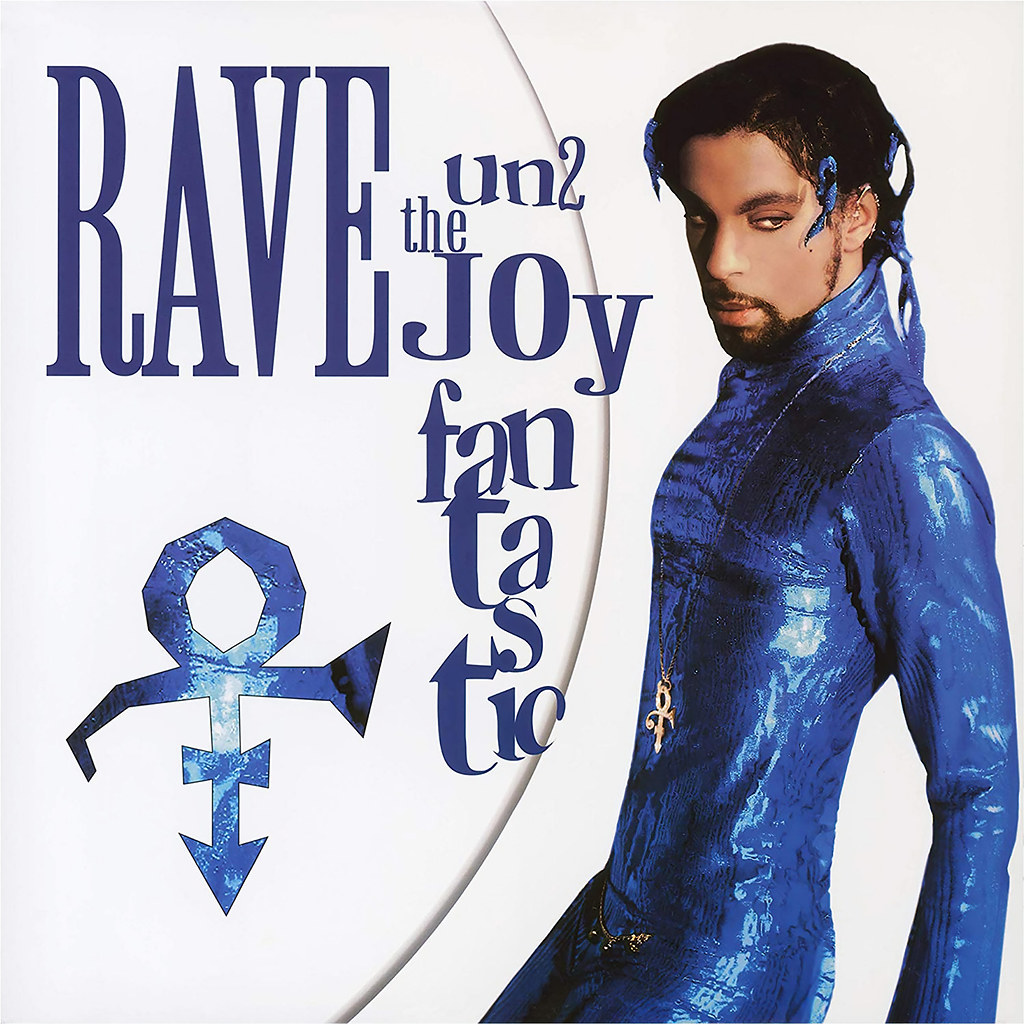
8. **Prince: The Eclectic Genius of Funk and Pop**Prince, born Prince Rogers Nelson in Minneapolis, Minnesota, in 1958, was an American singer, songwriter, and multi-instrumentalist who ascended to become one of the most profoundly influential musicians of his generation. His artistic vision was a vibrant tapestry, boldly weaving together rock, funk, pop, and R&B into a sonic signature that was unequivocally his own. This audacious blend allowed him to transcend conventional genre boundaries, forging new pathways for musical expression and constantly surprising his audience with his boundless creativity.
His initial breakthrough arrived with the album *1999* in 1982, an electrifying record that foreshadowed the incredible heights he would soon reach. However, it was the monumental *Purple Rain* in 1984 that cemented his legendary status as a global superstar. Serving as the unforgettable soundtrack to the film of the same name, *Purple Rain* unleashed a torrent of iconic hits, including the hauntingly beautiful “When Doves Cry” and the exhilarating “Let’s Go Crazy,” tracks that resonated deeply with millions and defined an era.
Beyond his prolific studio work, Prince was renowned for his electrifying live performances, which were spectacles of unparalleled energy and musicianship. His flamboyant fashion sense and genre-defying music were integral to his persona, establishing him as a true cultural icon who pushed the boundaries of artistic presentation. Over his illustrious career, he garnered seven Grammy Awards and achieved sales of over 100 million records worldwide, a testament to his immense popularity and critical acclaim. Prince’s unwavering ability to innovate and challenge industry norms left an indelible mark, and his profound influence continues to reverberate throughout the music world, inspiring artists long after his passing in 2016.
Read more about: The Unforgettable Echoes: 12 American Music Titans Who Forever Sculpted Sound and Culture
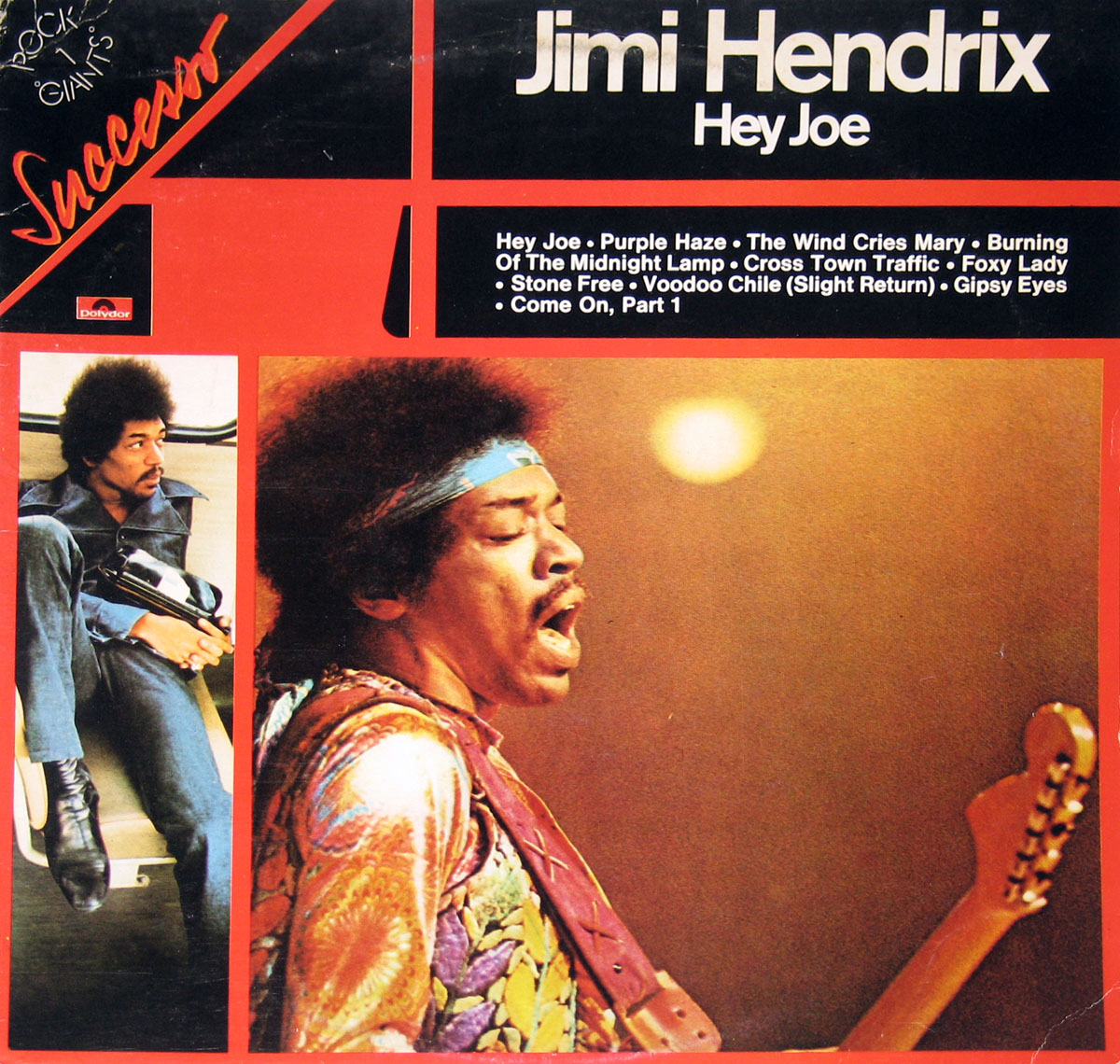
9. **Jimi Hendrix: The Guitar Revolutionary**Jimi Hendrix is universally celebrated as one of the greatest and most groundbreaking guitarists in the entire history of rock music. Born in Seattle, Washington, in 1942, Hendrix initially honed his craft as a dynamic backup guitarist before relocating to England, where he formed the iconic Jimi Hendrix Experience. It was with this trio that he unleashed his revolutionary approach to the electric guitar, redefining its capabilities with his pioneering use of feedback, searing distortion, and a host of innovative techniques that were previously unimaginable.
His debut album, *Are You Experienced*, released in 1967, is now widely considered an undisputed masterpiece, standing as one of the greatest rock albums of all time. This seminal work introduced the world to unforgettable tracks such as the psychedelic “Purple Haze,” the blues-infused “Hey Joe,” and the lyrically poignant “The Wind Cries Mary,” each a masterclass in sonic exploration. Hendrix didn’t just play the guitar; he made it an extension of his soul, bending sound to his will and transforming it into a voice for a generation.
Hendrix’s legendary performance at the 1969 Woodstock Festival, particularly his iconic, blistering rendition of “The Star-Spangled Banner,” transcended mere musical interpretation, solidifying his status as a countercultural icon and a symbol of artistic freedom. Despite his tragically untimely death at the tender age of 27 in 1970, Hendrix’s profound influence on music and the very art of guitar playing remains immeasurable. He is deservedly celebrated as a visionary pioneer who dramatically expanded the sonic possibilities of rock music, leaving a legacy that continues to inspire guitarists and musicians across the globe.
Read more about: The Unforgettable Echoes: 12 American Music Titans Who Forever Sculpted Sound and Culture
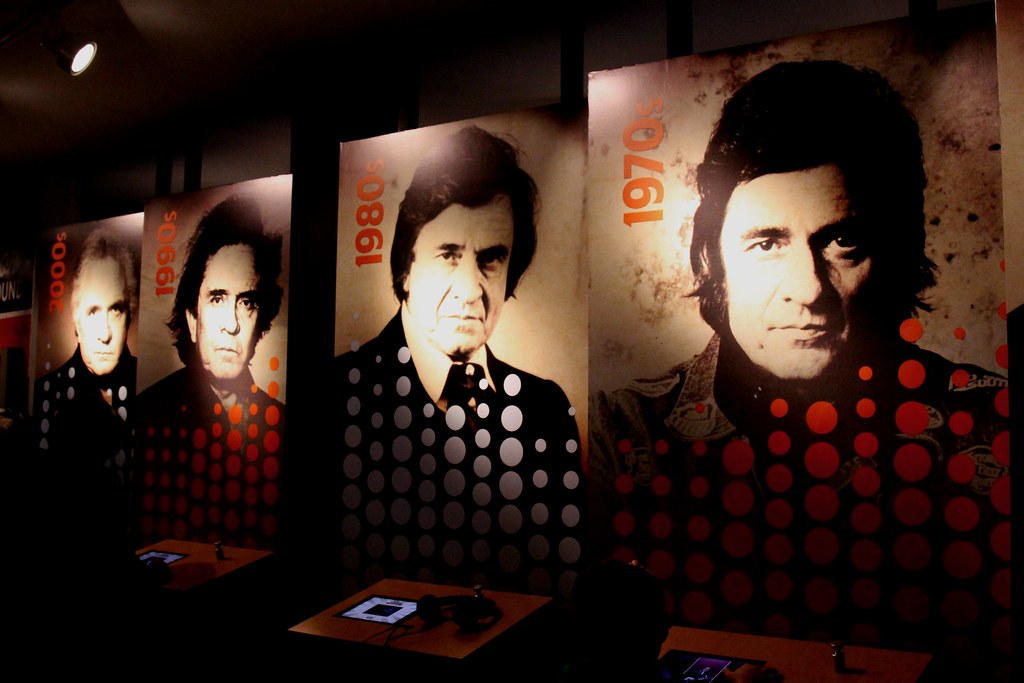
10. **Johnny Cash: The Man in Black’s Enduring Narratives**Johnny Cash, instantly recognizable as the “Man in Black,” was an American singer, songwriter, and actor whose deep, resonant voice and unapologetically rebellious spirit forged him into one of the most enduring and influential figures in country music. Born in Kingsland, Arkansas, in 1932, Cash’s distinctive musical journey began in the mid-1950s at the legendary Sun Records, a period that yielded timeless hits such as the iconic “I Walk the Line” and the starkly powerful “Folsom Prison Blues.” His unique artistry effortlessly transcended the often-rigid boundaries of country music, skillfully incorporating elements of rock, folk, and gospel, while his songs profoundly explored universal themes of love, profound loss, and ultimately, redemption.
Cash’s live albums, notably *At Folsom Prison* and *At San Quentin*, stand as legendary recordings, brilliantly capturing the raw, unbridled energy of his performances and his deeply authentic connection with his devoted audience. These concerts were more than just shows; they were communal experiences, offering a voice to the voiceless and sharing stories that resonated with the working class and marginalized. His unflinching honesty in addressing societal issues and personal struggles earned him a revered place in American musical consciousness.
Throughout his remarkable career, Cash was showered with numerous prestigious awards, including an impressive 13 Grammy Awards, a testament to his consistent artistic excellence. His monumental contributions were further acknowledged with inductions into the Country Music, Rock and Roll, and Gospel Music Halls of Fame, a rare triple honor that underscores his multifaceted impact. Johnny Cash’s legacy as an unequivocal musical icon and a compassionate voice for the downtrodden continues to profoundly inspire artists across an astonishing array of genres, ensuring his narratives remain vital and resonant.

11. **Whitney Houston: The Voice of a Generation**Whitney Houston was an American vocal powerhouse, undoubtedly one of the most successful and profoundly influential female vocalists of all time. Her singular talent was characterized by an astonishingly powerful voice and an innate ability to effortlessly cross over from her gospel roots to achieve global pop superstardom. Born in Newark, New Jersey, in 1963, Houston’s extraordinary talent was discovered by the legendary Clive Davis of Arista Records in the early 1980s, setting the stage for an unparalleled career.
Her self-titled debut album, released in 1985, instantly became a monumental success, establishing her as a formidable force in music and eventually becoming one of the best-selling albums of all time. This seminal work featured a string of iconic hits, including the tender “Saving All My Love for You” and the infectious “How Will I Know,” which showcased her incredible vocal range and emotional depth. However, it was her breathtaking 1992 rendition of “I Will Always Love You,” from the soundtrack of *The Bodyguard*, that transcended all expectations, becoming one of the best-selling singles in recorded history and cementing her status as an unparalleled vocalist.
Throughout her illustrious career, Houston accumulated an impressive six Grammy Awards and achieved staggering sales of over 200 million records worldwide, a testament to her immense popularity and enduring appeal. Despite the personal struggles that regrettably shadowed her later years, her sheer vocal talent and indelible impact on the music industry remain utterly unparalleled. Whitney Houston’s profound influence continues to resonate with undeniable power, securing her rightful place as one of the most iconic and beloved voices in the entire history of pop music.
Read more about: The Unforgettable Echoes: 12 American Music Titans Who Forever Sculpted Sound and Culture

12. **Beyoncé: The Modern Titan of Empowerment**Beyoncé Knowles-Carter, simply known as Beyoncé, is an American singer, songwriter, and actress who has unequivocally established herself as one of the most influential and successful performers on the global stage today. Born in Houston, Texas, in 1981, Beyoncé first garnered widespread acclaim as the charismatic lead singer of the R&B sensation Destiny’s Child, which remains one of the best-selling girl groups of all time. Her remarkable solo career truly ignited in 2003 with the release of her debut album, *Dangerously in Love*, an instant success featuring chart-topping singles like the infectious “Crazy in Love” and the captivating “Baby Boy.”
Beyoncé’s expansive musical repertoire seamlessly spans a rich tapestry of genres, including R&B, pop, hip-hop, and soul, showcasing her versatility and willingness to experiment. She is celebrated globally for her powerful, precise voice, her dynamic and meticulously choreographed stage presence, and her consistently innovative, visually stunning music videos that often set new industry benchmarks. Each performance is a masterclass in artistry, a testament to her relentless pursuit of perfection and her deep connection with her craft.
Throughout her unparalleled career, Beyoncé has amassed an astounding 28 Grammy Awards, cementing her legacy as the most awarded female artist in the prestigious history of the Grammys. Her groundbreaking work consistently explores profound themes of feminism, female empowerment, racial identity, and social justice, earning her an undisputed reputation as a cultural icon and a resonant voice for a new generation. Beyoncé continues to relentlessly push the boundaries of music, performance, and visual art, thereby solidifying her enduring legacy as one of the truly greatest and most transformative artists of her era.
Read more about: The Unforgettable Echoes: 12 American Music Titans Who Forever Sculpted Sound and Culture
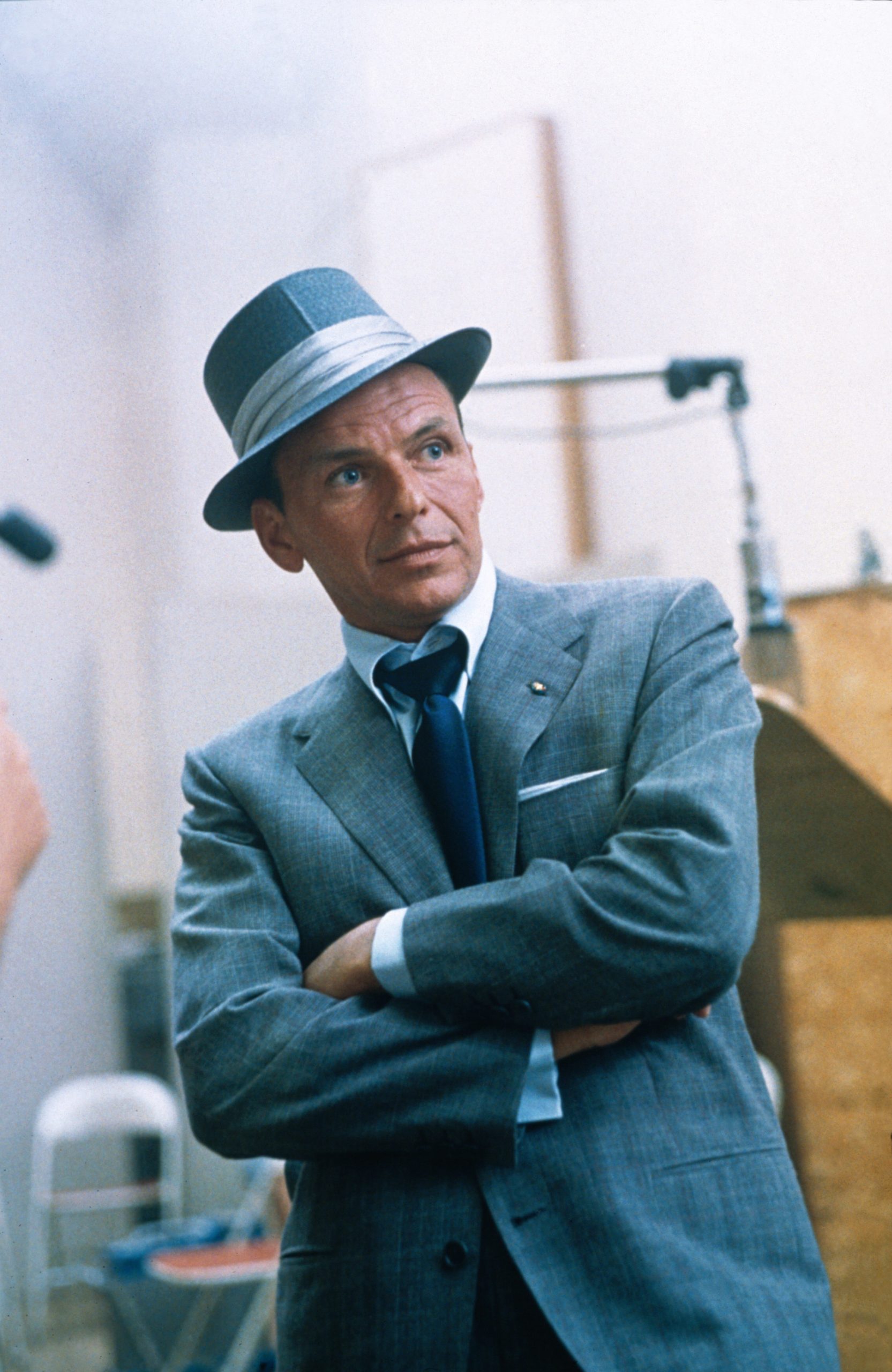
13. **Frank Sinatra: The Enduring Crooner’s Elegance**Frank Sinatra, affectionately known by monikers such as “Ol’ Blue Eyes” and “The Voice,” was an iconic American singer and actor who captivated audiences and became one of the most beloved and influential entertainers of the 20th century. Born in Hoboken, New Jersey, in 1915, Sinatra embarked on his storied music career in the vibrant 1930s, first gaining recognition as a smooth crooner with the celebrated Harry James and Tommy Dorsey orchestras. His unparalleled solo success truly blossomed in the 1940s, with timeless hits like “I’ll Never Smile Again” and “All or Nothing at All,” establishing his velvety voice and charismatic style as defining elements of the burgeoning big band and swing era.
Sinatra’s illustrious career spanned an incredible five decades, during which he released a plethora of hit albums and countless cherished songs that have become enduring classics. His magnificent catalog includes perennial favorites such as the defiant “My Way,” the romantic “Strangers in the Night,” and the anthemic “New York, New York,” each delivered with an inimitable blend of sophistication and raw emotion. Not content with just musical domination, he also cultivated a remarkably successful acting career, famously winning an Academy Award for his compelling role in the acclaimed film *From Here to Eternity*.
The immense influence of Frank Sinatra on music and popular culture is virtually immeasurable, transcending generations and continually setting the standard for vocal performance and artistic integrity. He remains an enduring global symbol of sophistication, timeless style, and an unmatched elegance in delivery. His interpretations of the Great American Songbook are definitive, ensuring his voice continues to resonate with profound impact, a testament to his status as a true legend of American entertainment.

14. **Ray Charles: The Genius Who Invented Soul**Ray Charles, an undeniably pioneering American singer, songwriter, and pianist, holds the profound distinction of being widely credited with inventing soul music. He achieved this by masterfully blending the distinct and powerful elements of gospel, blues, jazz, and R&B into a cohesive, electrifying new genre. Born in Albany, Georgia, in 1930, Charles faced immense adversity, bravely overcoming blindness from glaucoma to emerge as one of the most influential and innovative musicians of his time, driven by sheer talent and an unyielding spirit.
His career truly took flight when he signed with Atlantic Records in the early 1950s, a period that swiftly propelled him to widespread fame with groundbreaking hits such as the emotionally charged “I Got a Woman,” the raucous “What’d I Say,” and the deeply evocative “Georgia on My Mind.” Charles’s groundbreaking music famously shattered conventional genre barriers, crafting a sound that was both deeply personal and universally appealing. His emotionally charged, raw performances were so impactful that they earned him the fitting and enduring nickname, “The Genius.”
His landmark 1962 album, *Modern Sounds in Country and Western Music*, stands as another testament to his boundary-pushing vision, bravely bridging the cultural and musical divide between black and white musical traditions and introducing his unique sound to an even broader audience. Throughout his illustrious career, Charles was honored with an astonishing 17 Grammy Awards, and his profound influence resonated with countless artists across an incredibly diverse spectrum of genres. Ray Charles’s monumental contributions to American music are truly profound, and his indelible legacy as a trailblazer, an innovator, and a musical genius continues to profoundly inspire generations of musicians worldwide.
From the raw, untamed energy of rock and roll to the intricate tapestry of soul and the sophisticated elegance of jazz, these diverse legends and modern titans have not merely performed; they have redefined the very essence of American music. Their unique artistic visions, audacious innovations, and unwavering commitment to pushing creative boundaries have woven a rich, vibrant fabric that continues to enchant and inspire. Each artist, in their distinctive way, has left an enduring blueprint, ensuring that the dynamic spirit of American musical ingenuity will resonate across landscapes and generations for many years to come.





